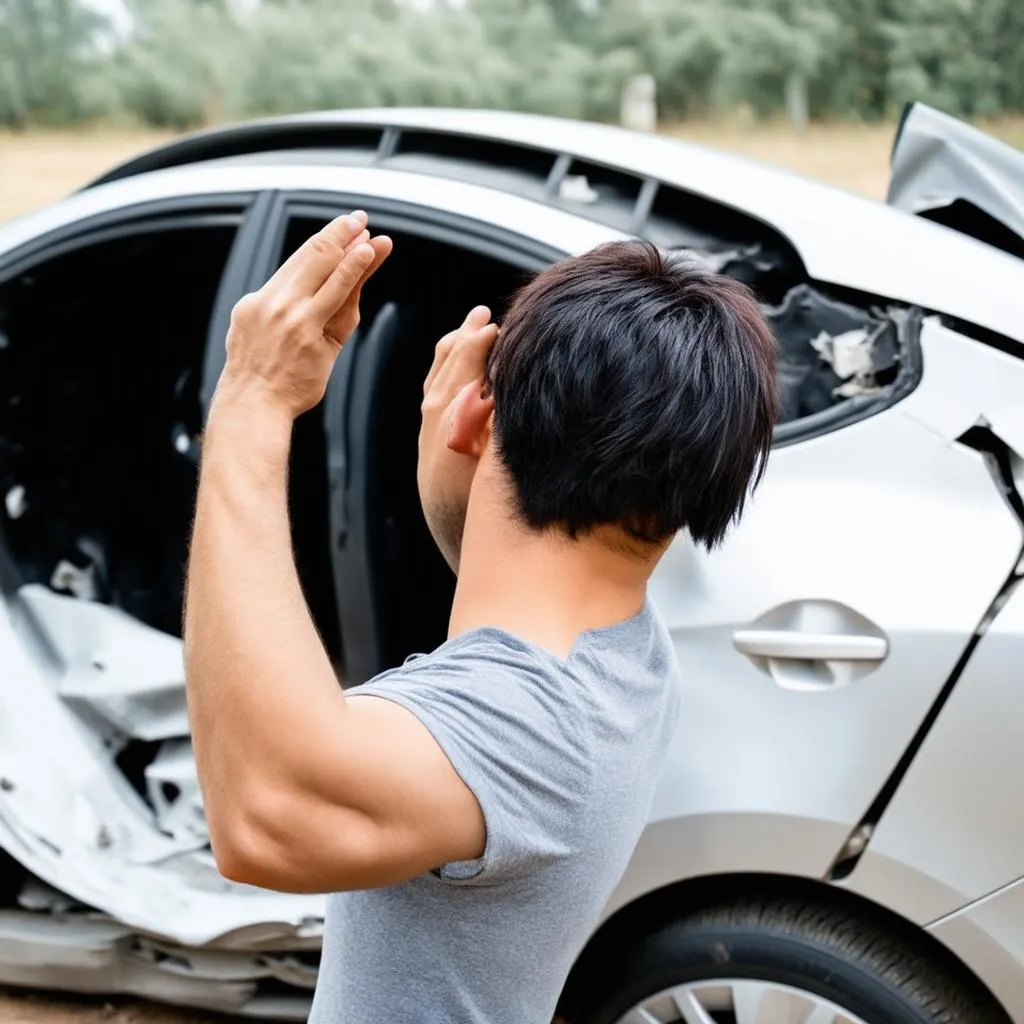Have you ever stepped out of a car after a fender bender, only to feel the world spinning? You’re not alone. Many people experience Vertigo After A Car Accident, and it can be a truly disorienting and frightening experience. But what exactly causes it, and what should you do if you experience it?
 dizziness after car accident
dizziness after car accident
Understanding Vertigo and its Causes
Before we dive in, let’s define “vertigo.” It’s more than just feeling dizzy. Vertigo creates a false sense of movement, making you feel like you, or the world around you, is spinning. This can be incredibly unsettling, especially after a car accident.
“Vertigo after a car accident is often multifactorial,” explains Dr. Emily Carter, a leading neurologist specializing in trauma-induced vertigo. “While the jarring impact itself can disrupt the delicate balance mechanisms in the inner ear, psychological factors like shock and anxiety can also contribute significantly.”
Common Causes of Post-Accident Vertigo:
-
Inner Ear Disturbances: The inner ear plays a crucial role in balance. Whiplash, a common injury from car accidents, can damage the inner ear structures, leading to Benign Paroxysmal Positional Vertigo (BPPV), a condition where tiny calcium crystals become dislodged and disrupt the inner ear fluid dynamics.
-
Head Injuries: Concussions or other head trauma can interfere with the brain’s ability to process spatial information, leading to dizziness and balance issues.
-
Cervical Spine Injuries: Damage to the neck vertebrae or soft tissues can affect the nerves and blood vessels that supply the inner ear and brain, contributing to vertigo.
-
Psychological Factors: The stress and anxiety following a car accident can trigger or worsen vertigo symptoms.
 doctor examining patient vertigo
doctor examining patient vertigo
What to Do if You Experience Vertigo After an Accident
-
Seek Immediate Medical Attention: Regardless of the severity of the accident, it’s crucial to get checked out by a medical professional. They can diagnose the underlying cause of your vertigo and recommend appropriate treatment.
-
Be Honest with Your Doctor: Describe your symptoms in detail, including when they began, how long they last, and any triggers that worsen or improve them.
-
Follow Your Treatment Plan: Depending on the cause of your vertigo, your doctor may recommend medications, vestibular rehabilitation therapy (exercises to retrain your balance system), or other interventions.
-
Manage Anxiety: If anxiety is a contributing factor, consider relaxation techniques like deep breathing exercises or meditation.
-
Be Patient: Recovery from vertigo can take time, especially if it’s linked to a head or neck injury. Be patient with your body and focus on gradual improvement.
Frequently Asked Questions about Vertigo After A Car Accident:
-
How long will the vertigo last? The duration of vertigo varies depending on the cause and individual factors. It can last for a few days, weeks, or even months.
-
When should I be concerned? If your vertigo is severe, persistent, accompanied by other symptoms like hearing loss, double vision, or difficulty speaking, seek immediate medical attention.
-
Can I prevent post-accident vertigo? While you can’t always prevent it, wearing your seatbelt and practicing safe driving habits can significantly reduce your risk of accidents and associated injuries.
Seeking Expert Help
Experiencing vertigo after a car accident can be a disorienting and worrisome experience. Remember, early diagnosis and treatment are crucial for a smooth recovery. If you’re struggling with vertigo or other post-accident symptoms, don’t hesitate to reach out to a qualified healthcare professional for personalized guidance and support.
Need help navigating the complexities of car diagnostics or have questions about automotive repair? Contact our expert team on Whatsapp at +84767531508 for 24/7 support. We’re here to help get you back on the road safely!